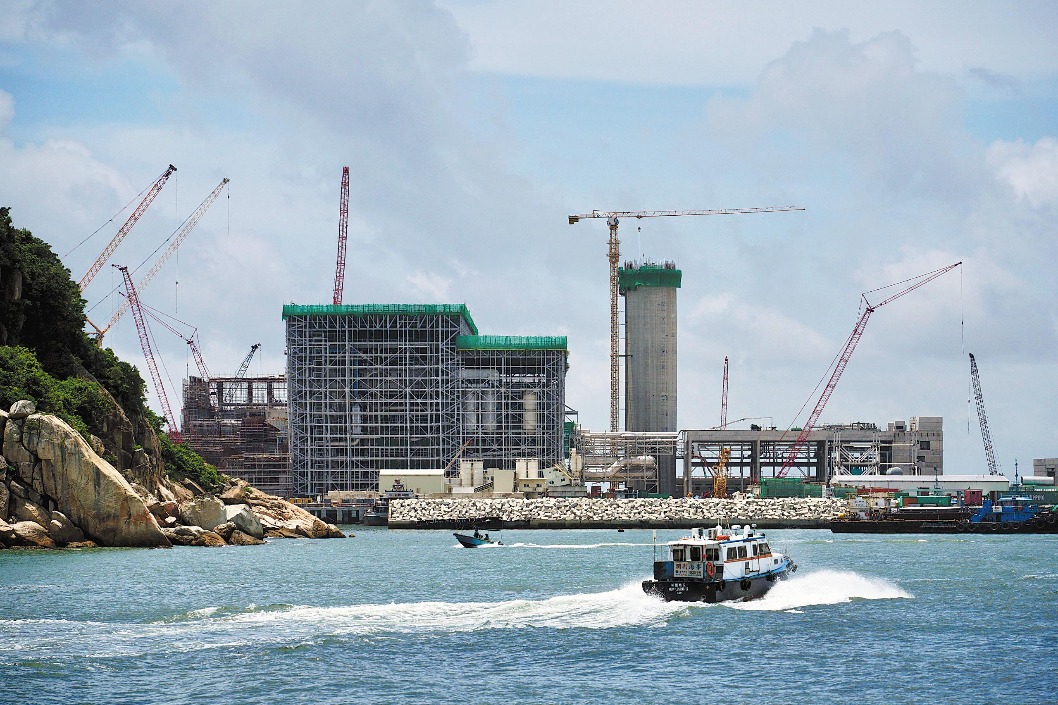Govt needs to explain benefit of proactive fiscal policy

A protege of former financial secretary Sir Philip Haddon-Cave, who laid the foundation of Hong Kong's non-intervention economic policy, Joseph Yam Chi-kwong has come out of retirement to take center stage in the "revisionist" movement initiated by the new Chief Executive Carrie Lam Cheng Yuet-ngor.
With a long career as a senior financial official and the Hong Kong Monetary Authority's (HKMA) first chief executive, Yam is seen to be eminently qualified to lend intellectual credence to the movement that could signal a sea change in the government's economic policy.
Yam's conversion to the new thinking is neither abrupt nor opportunistic. In one of the many articles he wrote when he was at the HKMA, Yam noted that having too many fiscal reserves was not necessarily a good thing. His fans at that time thought he was commenting on the Chinese mainland. But the point he made in that highly academic essay also holds true for today's Hong Kong, which has fiscal reserves amounting to more than $122 billion.
In recent years, more and more politicians and economists have criticized the Hong Kong government for its "miserly" approach to economic management. Yam, of course, is fully aware of the guiding principle of the budgetary discipline imposed on successive financial secretaries in past years.
Yam and others are not pushing for anything like a welfare state, which every business person in Hong Kong abhors. In his first published article he wrote after a long hiatus, Yam argues that it is not only acceptable, but necessary, for the government to spend more in driving economic growth, even at the risk of running a budget deficit.
"Indeed, with Hong Kong experiencing historically slow economic growth rates in the past decade and a strong desire of everybody to invest in the future of Hong Kong and build a more dynamic economy, the (contradictory) fiscal stance on the economy after a decade of fiscal surpluses seems inappropriate, if not irresponsible," he wrote.
Hong Kong's GDP is expected to grow 3 percent this year, compared with an average of about 5.3 percent in recent years.
The new economic thinking of the government is focused more on a much-discussed proposal for a government-led investment in the technology industry to diversify the local economic base, which has become overly dependent on finance and property. This imbalance has, in turn, widened the socially destabilizing income gap between the minority rich and rest of the population.
What's more, Hong Kong is seen to lag woefully behind its regional rivals in innovation and creativity, resulting in the inability to move up the value-added ladder while its traditional strength as a regional trade and logistics hub is rapidly eroded by rising competition from neighboring cities.
Non-interventionists believe the anomalies in economic development will, in time, be smoothed out by private-sector businesses initiatives. Their thinking dictates that the government should do less during a slowdown in economic growth to avoid competing for labor and financial resources with the private sector.
Yam now brands such fiscal policy as "irresponsible"; he has taken the view of the liberal economists arguing for economic stimulus from the government to boost growth. In the past several years, increased government expenditure on infrastructure has helped maintain a growth rate that is consistently above the average among developed economies.
But the proposal to subsidize the high-tech industry through direct subsidies, land grants and tax incentives will be a hard sell because it goes directly against the basic tenet of a free-market economy, which insists on a level playing field for all businesses. Socially, the proposal will be an even harder sell by the government, which has rejected universal pension for cost reasons.
To be sure, economic diversification can create more well-paying jobs and better opportunities for advancement for young workers. But the Hong Kong population is rapidly aging and hardship many workers will have to endure after retirement is real and immediate.
Non-interventionism may have outlived its usefulness because it can no longer meet the demands of Hong Kong people. But Yam and others will need to convince the public that greater government intervention to boost growth can benefit them rather than further widen the income gap.
The author is a veteran current affairs commentator.
(HK Edition 08/14/2017 page8)






























